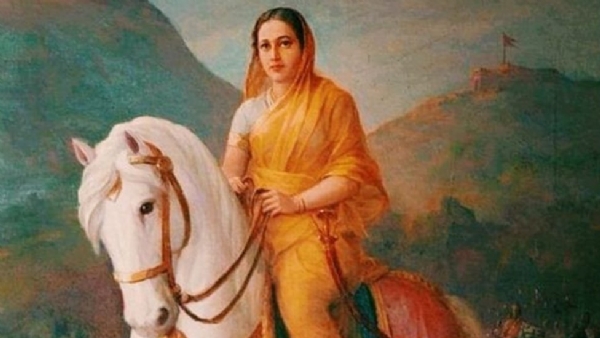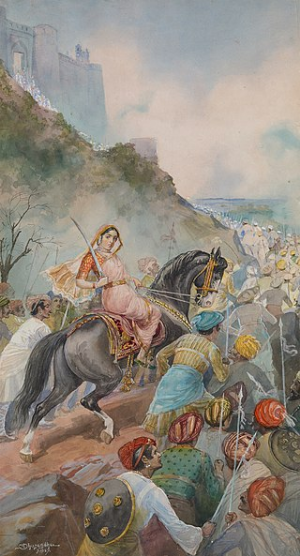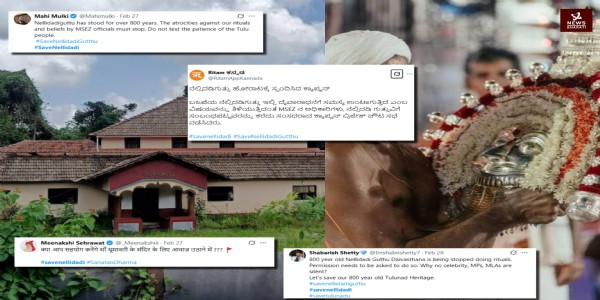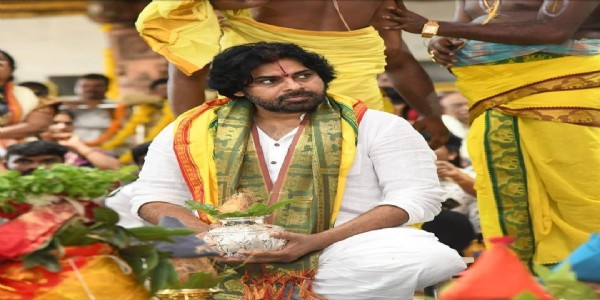NB Twitter scan | Maharani Tarabai: 25-year-old widowed queen of crisis-struck Maratha Empire who broke Aurangzeb's dream of destroying Marathas
A skilled cavalry warrior herself, she led from the front motivating her soldiers. She personally led the war against the Mughals in many pitched battles against them.
Total Views | 166
"In that awful crisis her character and strength saved the nation" - This is what noted historian Jadunath Sarkar has written about her bravery.
As far as legendary warrior queens go, one cannot forget the unflagging courage and indomitable spirit of the 'Mighty Warrior Queen of the Marathas' or rainha dos Marathas - Tarabai Rajaram Bonsale who took over the Maratha Empire at a critical juncture, fought back Aurangzeb, and saved the Empire from destruction.

In 1700, when the Maratha kingdom went into a state of turmoil after the death of Rajaram, when, Aurangzeb saw it as the right opportunity to completely crush it, it was then, 25-year-old widow, Tarabai, instead of griefing over the death of her husband, took over the reins of Maratha Kingdom in her hand to fight against Mughals. She understood the importance of this resistance.
When Mughals heard the news, they thought all that was in their way was a widow and her infant son, however, they soon realized their mistake.
Born in a military home, she was an expert tactician as well as a brilliant warrior. She already had earned a reputation for her formidable knowledge of civil, political and military matters. She had also worked closely with Shivaji and knew the weaknesses of Mughal armies.
A skilled cavalry warrior herself, she led from the front motivating her soldiers. She personally led the war against the Mughals in many pitched battles against them.

Rani Tarabai's first battle was in 1701 when she led the Maratha forces against the Mughal general Zulfiqar Khan. The Maratha army was outnumbered, but Tarabai's strategic skills and bravery turned the tide of the battle. The Marathas won, and Zulfiqar Khan was captured. Using Aurangzeb’s particular technique of bribing commanders on the enemy side, she forayed into the Northern territories all the way to Malwa and Gujarat and appointed her own revenue collectors called Kamaishdars.
In 1706, Tarabai was captured by Mughal forces for a brief period of 4 days but she escaped after the Mughal camp – in which she was being held – was ambushed by the Marathas. During these seven years of rule, she not only resisted Aurangazeb bravely, but also defeated him and captured a few places. Even expanded the Maratha empire all the way up to Karnataka as well as the Western coast up to Surat and Bharuch.
“ ‘Tara Bai, as the wife of Rajaram, was called, showed great powers of command and government, and from day to day, the war spread and the power of the Mahrattas increased." – Khafi Khan, the Mughal Court Chronicler in his book Munthkab-Al-Lubab
After Aurangzeb's death, the Mughals released Shahu I, hoping to use him as an ally against Tarabai. As expected a bitter internal conflict broke out between Shahu and Tarabai, for the throne, who soon ascended it in 1708 backed by Peshwa Balaji Vishwanath. Tarabai was sidelined, and she established a rival court at Kolhapur in 1709. However, she was deposed after Shahu and Rajasabai (Rajaram’s second wife) joined forces to put Rajasabai’s son — Sambhaji II — on the Kolhapur throne.
Tarabai and her son Shivaji II were imprisoned, but whom she never exposed to the outside world was her grandson Ramraja. Sambhaji II forced Shahu to keep Tarabai under house arrest at Satara. Since Shahu did not have children of his own, he designated Ramraja as his successor.
With Tarabai’s help, the young prince ascended the Maratha throne. However, later when he became close to the powerful Peshwa, Nana Sahib, and refused to accede to her wishes, Tarabai denounced him as her grandson.
Nonetheless, in 1752, Tarabai had to settle for a pact that acknowledged Nana Sahib’s authority in return for the freedom to settle “into her life’s final role – that of a powerful quasi-sovereign dowager”.
She agreed to dismiss her lieutenant Baburao Jadhav, whom Balaji Baji Rao disliked. In return, Balaji Baji Rao forgave her. On 14 September 1752, the two took oaths at the Khandoba temple in Jejuri, promising mutual peace. At this oath ceremony, Tarabai also swore that Rajaram II was not her grandson.
Tarabai did not just defeat Aurangzeb, she shattered his dreams of crushing the Maratha Empire, and he died a broken man. She was one of the few female rulers of her time and demonstrated that women could be effective leaders. Her military victories and alliances helped preserve the Maratha Empire's autonomy and prevented the Mughals from expanding their territory.
Bharati Web







